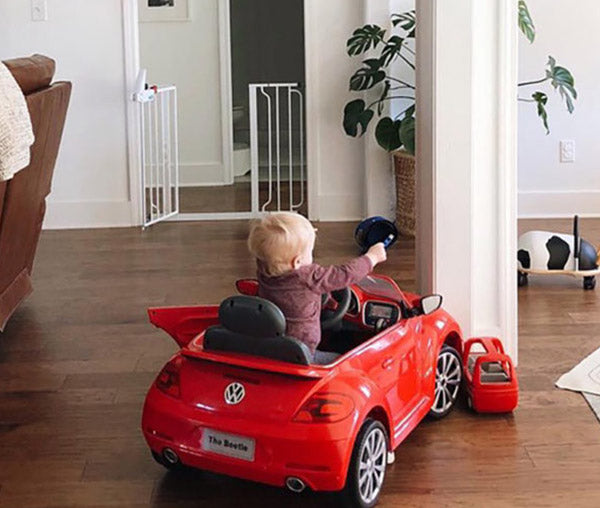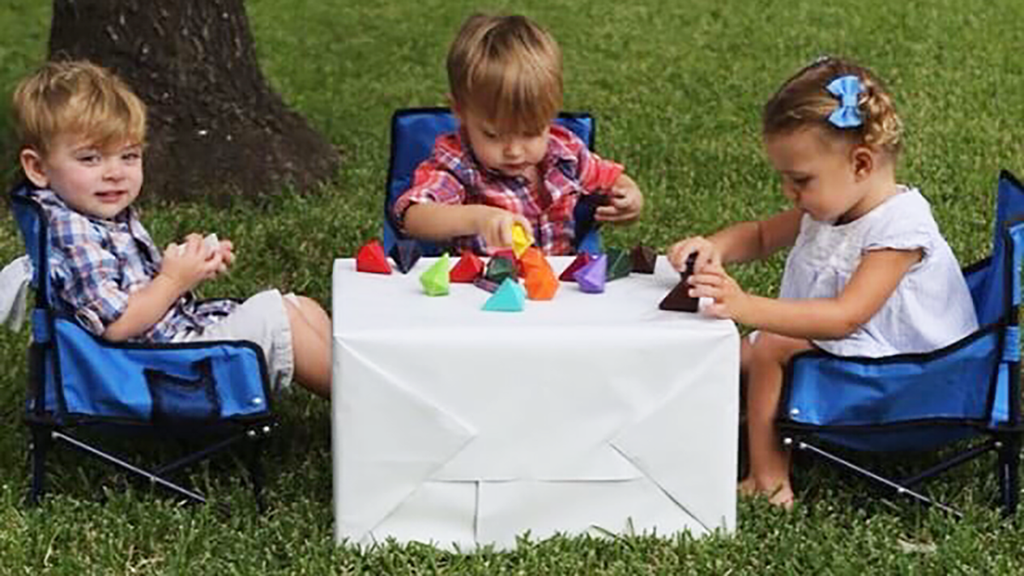
October 30, 2020
How to Teach Your Toddler Independent Play
Don’t get me wrong, it is an incredible feeling to be wanted all the time by your child. Talk about an ego boost! However, it can also be incredibly draining and exhausting.
When you find yourself reading your child’s favorite book for the millionth time or sitting down for another rousing round of tea party, it’s time to teach your toddler independent play. Not only is this practice a sanity-saver for parents, but it also helps young kids build creativity and critical-thinking skills.
Here are some tips to teach and encourage toddler independent play.
1. Create reasonable distance
Just after my daughter’s first birthday, I saw a pattern emerge. If she caught me watching her play by herself, she would instantly jump up, demand to be held or ask for an extra snack or something. At first, I caved and catered to her every whim. That said, it didn’t take long for thoughts of despair to enter my mind: would I have to sit uncomfortably on the floor and feign interest in blocks forever?
Even though I had good intentions, my attention was actually a major distraction, causing her to lose focus on the task at hand. While I would never recommend completely ignoring your child, I discovered acting a little bit aloof went a long way in encouraging independent play.
Hanging out in the same room, I busied myself with other tasks and kept watch out of the corner of my eye. I didn’t let my gaze linger, and I avoided interrupting until it was clear she was coming to a natural break in the activity. If she demanded my attention, I’d acknowledge her by quickly saying, “yes, you’re playing so nicely with your dragon! Keep it up!”
This was so effective that my husband and I even started playfully reminding each other to “don’t watch!” when our daughter became immersed in a toy or activity. Of course, if she really needs us, she has our full, undivided attention. However, if she’s fed, clean, safe, we just let her do her thing.

2. Strategically offer praise
When she comes to a stopping point after playing alone for a few minutes, I might stroll across the room while casually saying, “I like how you’re playing with your doll! That looks fun!”
I also offer praise when she has wrapped up an activity and we’re sitting down for a snack at the table. Over string cheese or goldfish, I tell her how much I liked how she was playing nicely in her tent or reading a book on the floor.
3. Let her choose
One way to empower toddler independent play is to let them choose. A choice not only provides a sense of ownership, but it also comes with a whole host of other benefits that prepare your little one for a lifetime of independence. I usually offer two play options, then step back to give her some space to explore her chosen activity.

4. Lead by example
I decided that if I worked on a task by myself in the same room as my daughter, she might be encouraged to emulate the same independent behaviors.
Our family room and kitchen share the same space, so while she’s occupied in her play area, I respond to emails, clean out the dishwasher, prepare her snack, or even run the vacuum. If she races over and tries to join me, I explain that Mommy is working on something by herself, and she can do something on her own too. I do this in small increments, so if she asks to join me several times over the course of a couple of hours, I’m typically only redirecting her once or twice.
Reduce clutter
We are very fortunate to have an abundance of toys in our house. However, studies show there really can be too much of a good thing in the toy department.
Play quality significantly decreases when toddlers become overwhelmed or overstimulated by a room full of toys. Instead of presenting every doll, truck and puzzle, keep a few out and regularly recycle the items between the playroom shelves and the storage closet. Not only will the toys seem brand new to her each time they are reintroduced, your little one will become more creative and improve their attention spans.
These are the tips and tricks that worked well for us. Now, at nineteen months old, she can play independently for 10-20 minutes at a time. Best of all, I can join her when I want to, not because I have to. What tactics worked to encourage toddler independent play in your household?